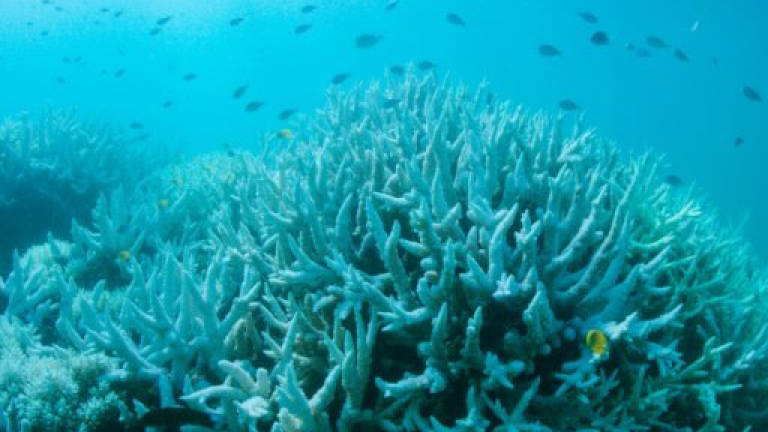Coastal development affects coral reefs in Straits of Malacca: Wan Junaidi

KUALA LUMPUR: Coral reefs in the Straits of Malacca develop poorly due to the highly turbid water which is widely attributed to coastal development, says Natural Resources and Environment Minister Datuk Seri Dr Wan Junaidi Tuanku Jaafar.
In a statement released here today, he said high levels of suspended materials combined with relatively strong tidal currents resulted in poor penetration by sunlight into the coastal waters which affected the coral reefs.
"Reefs are only found in shallow waters of less than 10 metres in depth. This is especially true in the coastal waters off Malacca where the straits gets narrower and it is also one of the busiest maritime highways in the world," he said.
Wan Junaidi said coral reefs were sparsely found along the Straits of Malacca, and areas known to have coral reef ecosystems are the Pulau Payar Marine Park, Pulau Langkawi and Pulau Perak in (Kedah); Pulau Jarak (Perak) and Tanjung Tuan, also known as Cape Rachado situated in a shared border between Negeri Sembilan and Malacca.
The main threats to the coral reefs at Tanjung Tuan are rapid tourism development along the coast and increased sedimentation from land clearing activities, increased disposal of sewage and domestic waste, and pressure on the reefs by tourists visiting the sites.
“Another species affected by the destruction of coral reefs is the hawksbill turtle, where the coastal beaches and islands in Malacca are also important hawksbill turtle nesting sites in Malaysia.
“This is the largest nesting population in Peninsular Malaysia, second only to Sabah's Turtle Islands," Wan Junaidi said.
A study by the World Wide Fund for Nature (WWF)-Malaysia, the Fisheries Department and the Southeast Asian Fisheries Development Centre (SEAFDEC) in 2008 tracked the migration pattern of hawksbill turtles using satellite telemetry technology, he said.
"The study found that hawksbill turtles from Malacca migrated to the Riau Island archipelago, Indonesia. It is unsurprising if the turtles which have migrated to Indonesian waters do not come back to Malaysian waters if their source of food continues to decline in Malacca.
"Therefore, coastal development needs to be well planned and properly managed to ensure the sustainability of coral reefs in the Malacca waters, while initiatives such as reducing use of plastics and prohibiting waste disposal into the sea would prevent ingestion of marine debris by marine organisms," he said.
Wan Junaidi said the Natural Resources and Environment Ministry together with Department of Marine Parks did propose to gazette and manage the area as a marine park in 2014 but to date, the proposal had yet to receive any support or acceptance.
The Department of Marine Parks would continue to pursue this gazettement as it would allow proper management of the area to ensure sustainability of Malaysia's natural treasures, while the ministry was hopeful that Tanjung Tuan and the turtle nesting beaches in Malacca would receive protection status that they truly deserved, he added. — Bernama